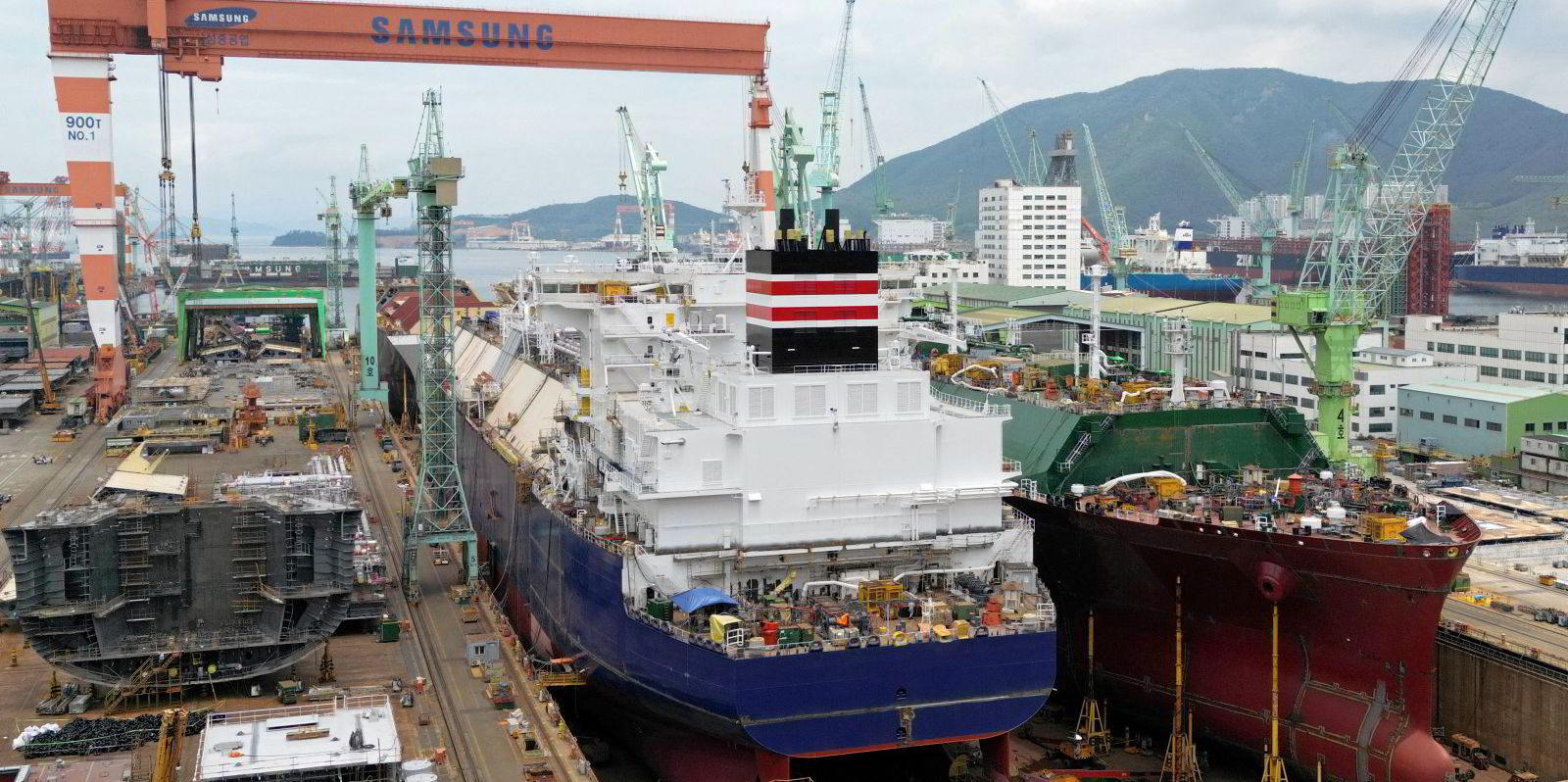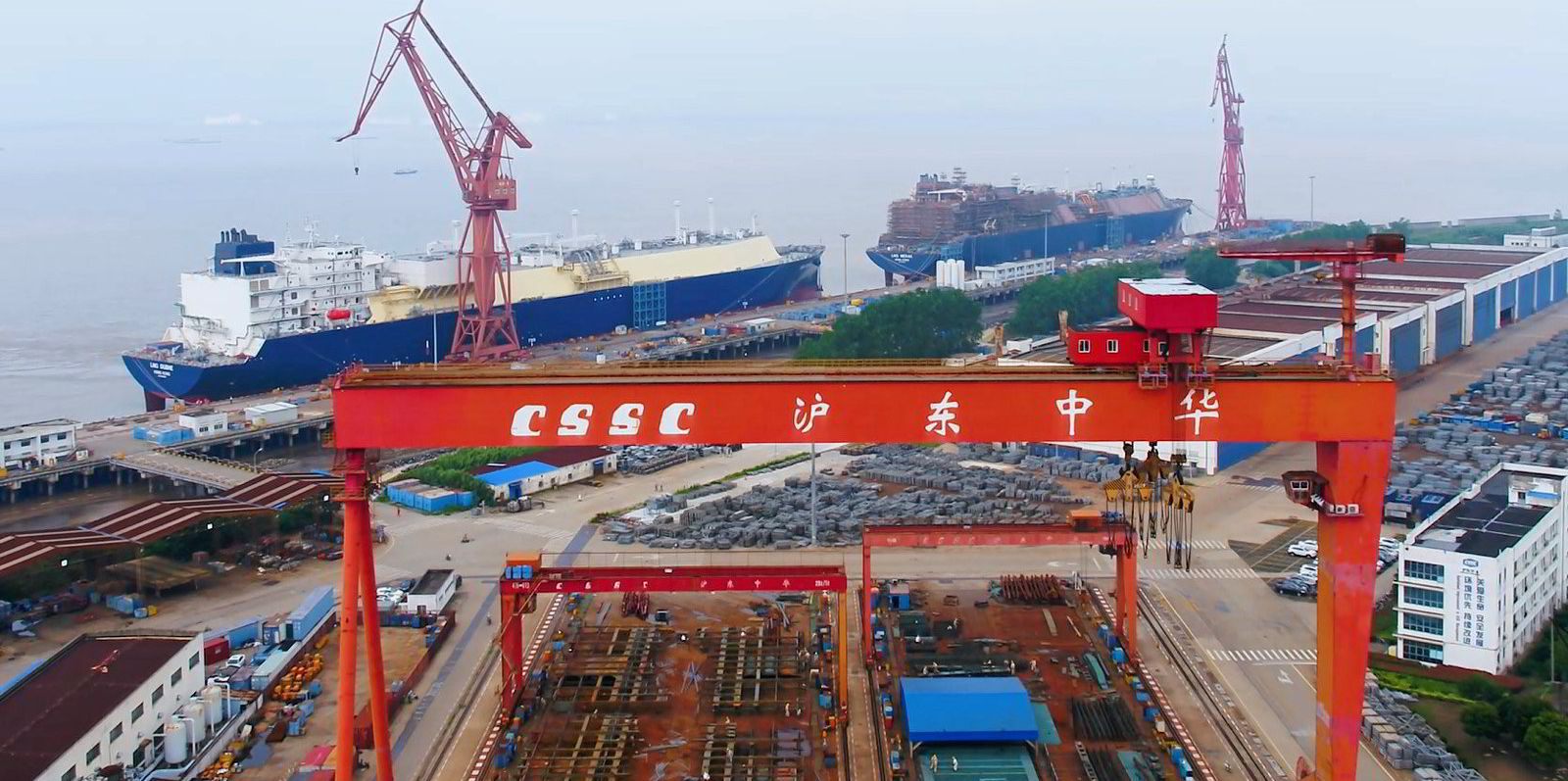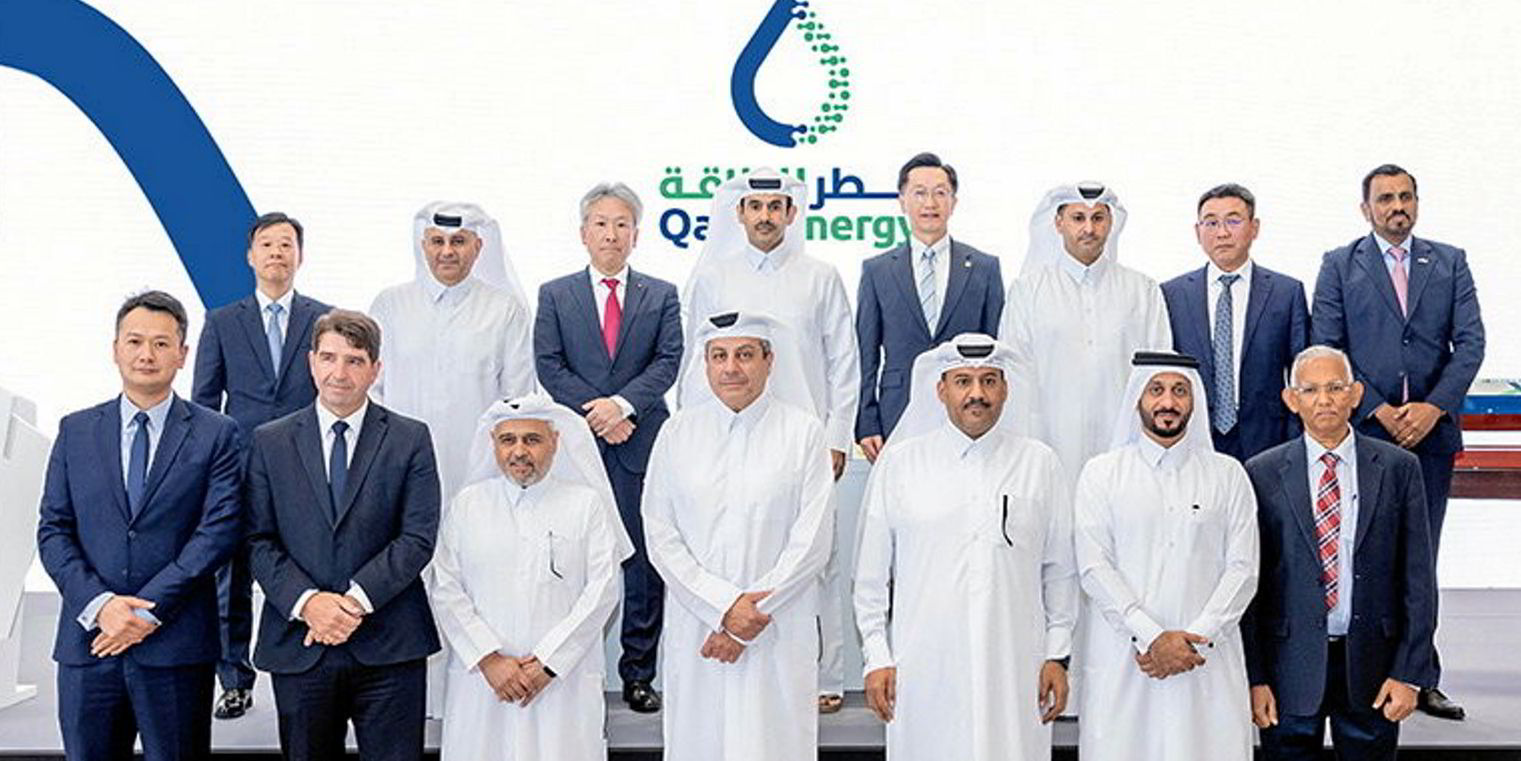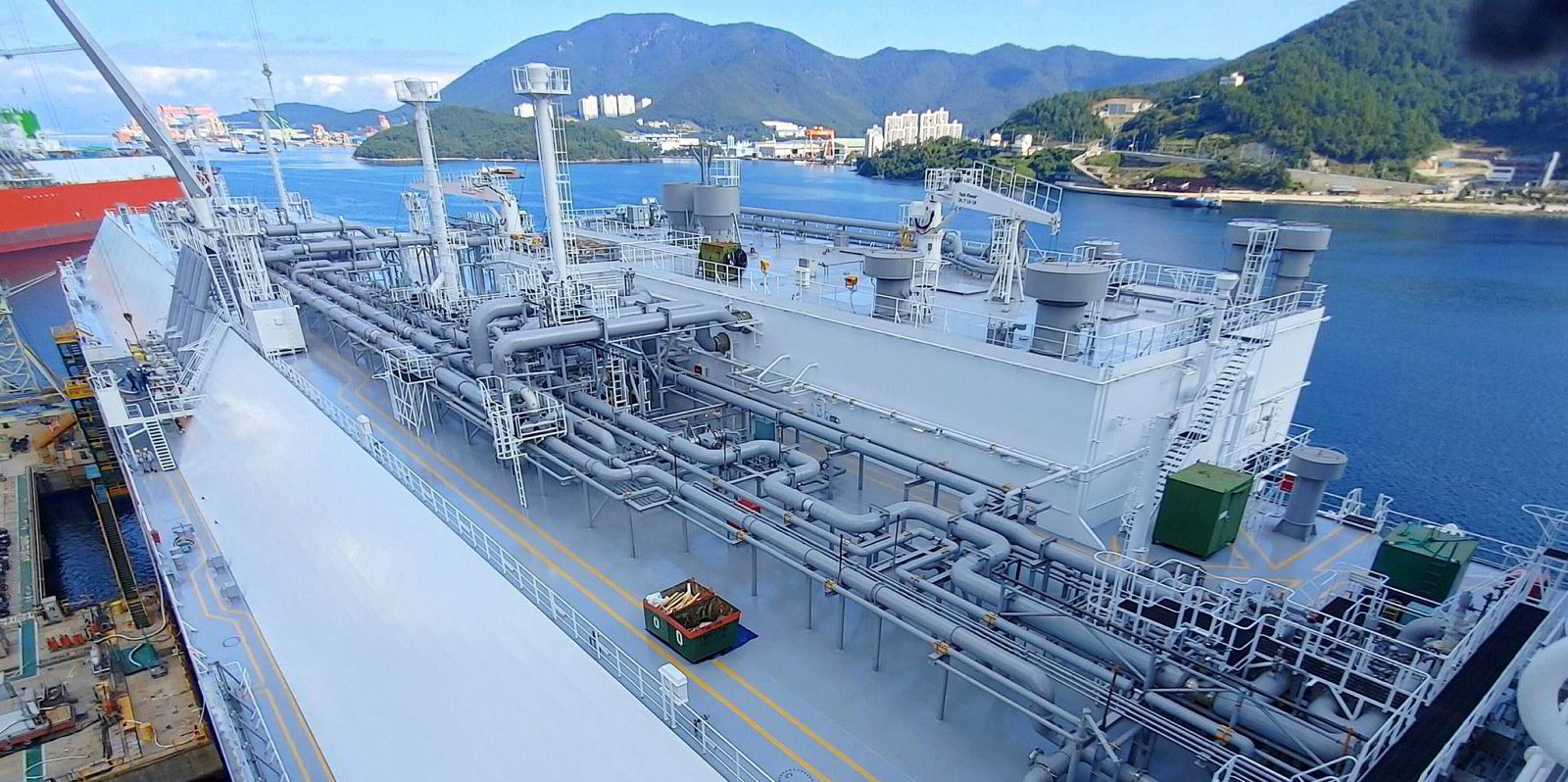LNG newbuildings contracted for Qatari business made up the bulk of orders placed during the first three months of this year, and while some further contracts are due to be inked by producer QatarEnergy, other names are working on fresh business for 2024.
According to broker databases and TradeWinds records, at least 43 LNG carriers were contracted in the first quarter of 2024, along with a single floating storage and regasification unit and a lone floating LNG production unit, bringing the total to 45.
This compares with 17 LNG carriers in the first quarter of 2023 and close to 70 for that year.
Of the 43 LNG carriers contracted in the past three months, 35 were inked by a combination of six shipowners against berths pre-reserved by QatarEnergy in connection with its mammoth LNG shipbuilding project, which has now grown to more than 100 vessels.
Eight of these orders were for QatarEnergy’s new supersize generation Q-Max vessels of 271,000 cbm. These were firmed up at Hudong-Zhonghua Shipbuilding (Group) in China.
On top of these 35, Qatari LNG carrier owner Nakilat also contracted two vessels for its own account outside the QatarEnergy project.
Noteworthy
Greece’s Capital Gas stands out as the single independent LNG carrier owner that managed to squeeze in among the Qatari crush to add another four newbuildings for its rapidly expanding fleet at HD Hyundai Samho Heavy Industries.
Sea Jade Investment, Hong Kong owner Wah Kwong Maritime’s joint venture with Chinese leasing company CSSC (Hong Kong) Shipping and China Gas Holdings, also firmed up two optional LNG slots at China’s Dalian Shipbuilding Industry against charters with a domestic utility.
Japan’s Mitsui OSK Lines was finally able to ink its fiercely fought time-charter contract with Poland’s Gaz-System and firm up a rare newbuilding deal for a pricey $363m FSRU.
The start of 2024 also saw Canada’s Cedar LNG giving Samsung Heavy Industries the green light to move forward with a $1.5bn FLNG unit capable of producing 3.3 million tonnes per annum. This unit will feature a storage capacity of 250,000 cbm for LNG.
Market players said the first-quarter tally looks strong but heavily skewed towards the Qatari business.
They pointed out that the strong and holding firm prices, of around $260m-plus, for a 174,000-cbm LNG workhorse have deterred the bulk of shipowners from signing up for uncommitted tonnage.
In addition, commentators cited the US administration’s pause on approvals for new liquefaction projects and the looming numbers of LNG carrier deliveries, which currently stand at close to 70 vessels this year and again in 2025.
Despite this, brokers, LNG project developers and shipbuilders see enquiries for more LNG carriers to be ordered in 2024.
Inbound
They point to the ongoing tender by Adnoc Logistics & Services, business from US liquefaction projects, an incoming FSRU order and demand from named energy majors.
On top of this, QatarEnergy is expected to proceed with a further 10 Q-Max newbuildings at Hudong-Zhonghua in China, which will likely see the first 2030 delivery date confirmed.
TradeWinds has reported that Nakilat has been lined up to take two of these 271,000-cbm vessels, Shandong three, China LNG Shipping two and Cosco/MOL’s joint venture three.
Discussions are also said to be ongoing with Hanwha Ocean and possibly HD Hyundai Heavy Industries on Q-Max tonnage.
Questions remain over 17 LNG carrier newbuilding berths being held for a quartet of owners at two South Korean yards for TotalEnergies’ much-postponed Mozambique LNG project.
Shipbuilders have extended these slots until the end of June.







